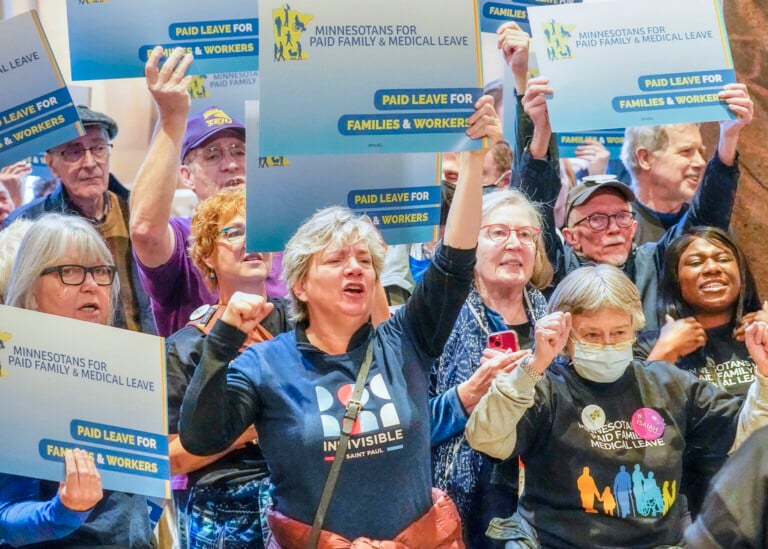Legislature tweaks paid family leave and sick time in minor concessions to businesses

ST. PAUL — (Minnesota Reformer) — The narrowly divided Minnesota Legislature passed the smallest of changes to the state’s paid family leave program and paid sick leave mandate, rejecting more significant reversals sought by Republicans and some moderate Democrats.
House Speaker Lisa Demuth, R-Cold Spring, said failing to make larger changes to the two laws was one of her party’s most significant disappointments of the session.
“Those are things that we really wanted to get done … We couldn’t find bipartisan agreement,” Demuth said following a marathon one-day special session on Monday.
Democrats were largely able to protect their progressive agenda from 2023 even while passing a smaller budget in the face of a gloomy economic forecast. The notable exception is repealing MinnesotaCare for undocumented adults at the end of the year, a key priority for Republicans.
Employers and workers may never even notice the change passed to the paid family leave program, which reduces the maximum payroll tax from 1.2% to 1.1%. The program is slated to start next year with a payroll tax of .88%, with employers paying at least half of the cost, and may never rise to meet the cap, depending on demand.
The program is slated to start on Jan. 1 with workers eligible to take up to 12 weeks of family leave and 12 weeks of medical leave — or 20 weeks total in a single year. To qualify, workers must have earned at least $3,700 in the past year, with benefits based on a workers’ wages up to about $1,400 a week.
The changes to the earned sick and safe time law may similarly go unnoticed by the vast majority of workers. The law, which took effect in 2024, will continue to require employers to provide one hour of paid sick leave for every 30 hours worked up to 48 hours a year — i.e., six paid sick days a year for full-time employees.
Under the bill, an employer may require an employee to provide documentation — such as a doctor’s note — that their earned sick or safe leave is covered after two days, down from three days in current law.
The bill adds that a worker may voluntarily find a replacement for a missed shift, but the law will continue to bar employers from requiring workers to find a replacement.
The bill also explicitly authorizes a practice that was already permitted but caused some confusion, allowing employers to advance earned sick and safe time to an employee based on the number of hours an employee is expected to work, providing additional time if that estimate falls short.
The laws made it through the legislative session mostly unchanged despite a push by moderate Democrats in the Senate to reduce the total number of paid family leave weeks to 14 in a year and carve-out small employers. Moderate Senate Democrats also supported carving out small businesses and farms from the sick time mandate. House Democrats were unified in their opposition to those changes.
Rep. Dave Pinto, DFL-St. Paul, said the small changes go further than most Democrats wanted but still maintain the integrity of paid family leave and sick time.
“These are programs that make Minnesotans stronger,” Pinto, co-chair of the House labor committee, said on the floor before passage of the omnibus jobs and workforce bill, which the governor is expected to sign.
(Story by Max Nesterak – Minnesota Reformer)






